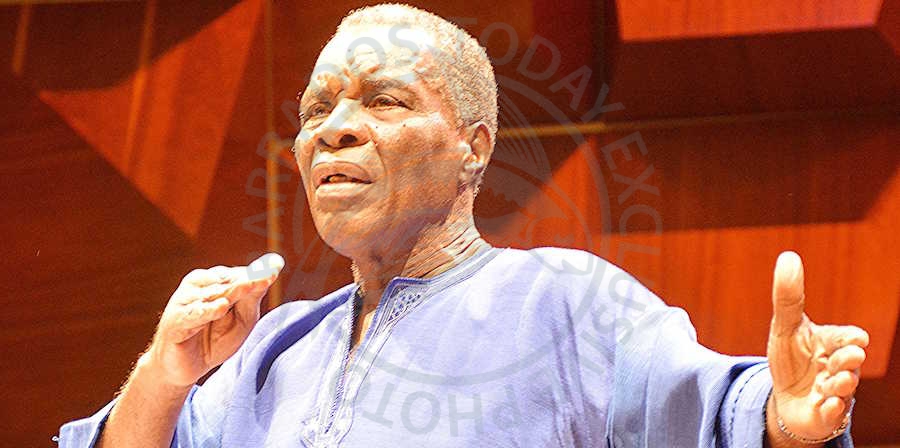Well-known historian Trevor Marshall has suggested that potential backlash from black Barbadians is likely the reason for Government postponing the removal of the Lord Nelson statue from Heroes Square.
Despite a strong public movement to force the Barbados Labour Party-led administration to get rid of the statue, Marshall, who has publicly called for Nelson’s removal for almost 30 years, said he believes black Barbadians were more likely to be upset than white people if it was removed.
Minister in the Prime Minister’s Office with responsibility for Culture, John King, announced last week that instead of having the controversial statue removed to mark the end of the 2020 Emancipation Season, resources would instead be directed at completing the long-delayed Rock Hall Freedom Park in St Thomas. The park was opened on Sunday.
During a protest in Heroes Square, The City, the day before, an outraged president of the Caribbean Movement for Peace and Integration (CMPI) David Denny said the Mia Mottley government had a change of heart because it was afraid of the white ruling class.
However, during an interview with Barbados TODAY, Marshall said while the Government may need financial assistance from the private sector to remove the statue, he believes the main reason it will stay where it is at this time, is that black Barbadians would call for Prime Minister Mottley’s head if she followed through with the plan.
“Removing Nelson in Barbados is like nearly removing Jesus Christ from our system of worship, and I mean that. Since 1813, there has been a cult, a religion of ‘Nelsonism’ in Barbados. Now, you say it is the white people who have triumphed and who continue to triumph, but the whites in Barbados erected the statue on the basis of the lie that Nelson saved Barbados from the French,” argued Marshall, adding that up to this day, there are Barbadians who are yet to forgive Prime Minister Sir Lloyd Erskine Sandiford for turning Nelson around in the 1990s.
“Ninety-nine per cent of Barbadians believe that Nelson, a white, blond, blue-eyed man saved them from the French, while Jesus, another blond, blue-eyed man saved them from their sins. So, if you get my point, it has nothing to do with just whites, it is embedded in the psyche of Barbadians that the Nelson Statue must stand.”
Marshall added that because Barbadian society does not know enough about the lie that underpins the Nelson statue, Prime Minister Mottley would have to embark on a serious campaign to educate Barbadians that the admiral made no contribution to this island.
“Ms Mottley needs to have an extensive re-education programme for Barbadians to explain to them that Nelson was irrelevant to Barbados and Nelson was against the abolition of slavery.
“And finally, there is the issue of cost and this is why I was not surprised when Ms Mottley came to the conclusion. If she were to authorize a forklift and these big trucks to go to Heroes Square at the dead of night to go and move Nelson Statue, first of all, she would have to pay them double time, triple time, even if they are government workers.
“Then, we have not yet decided where to put the statue. Now, if you move the statue, when the people of Barbados get up next morning and find the statue gone, there would be what old time Barbadians call a hue and cry,” Marshall added.
The historian contended that white people created their own history and reality in the argument that the Battle of Trafalgar in 1805, off the coast of Spain 4 000 miles away, was about Barbados and that if the French had won this island would have become a French colony.
He insisted that was a lie, arguing that history shows that Barbados was never in danger of a French invasion or becoming a French colony.
“Yes, Nelson was a hero and he won a famous battle; he destroyed French navy power. In Jamaica, they put up a plaque for him, in other Caribbean countries they said prayers for his soul, but in Barbados, a territory that he did not like and where the people here did not like him, they put up a statue and made the claim that he saved Barbados from the French,” Marshall said. (anestahenry@barbadostoday.bb)
Historian: Delay in moving Nelson about blacks
334




